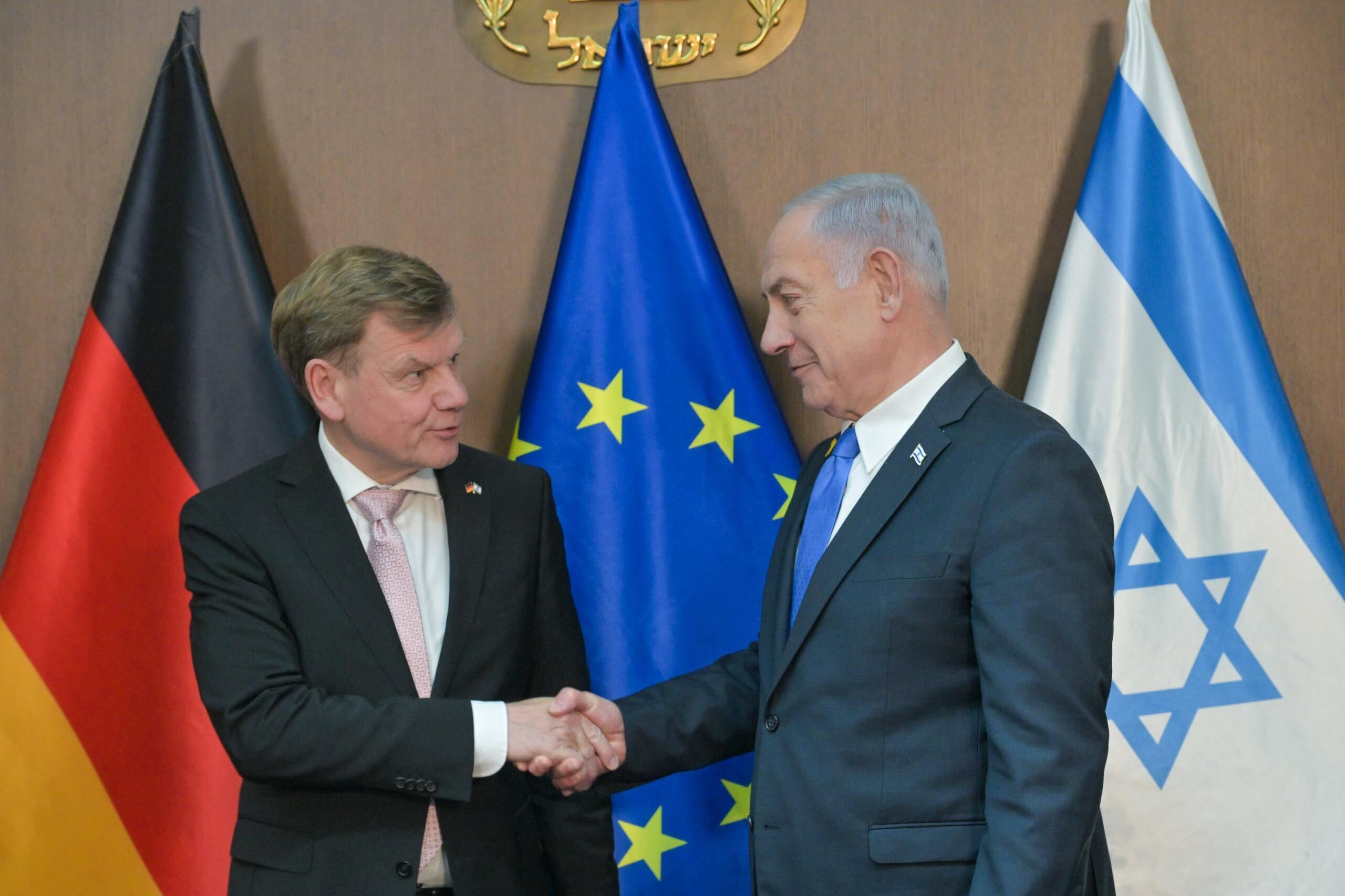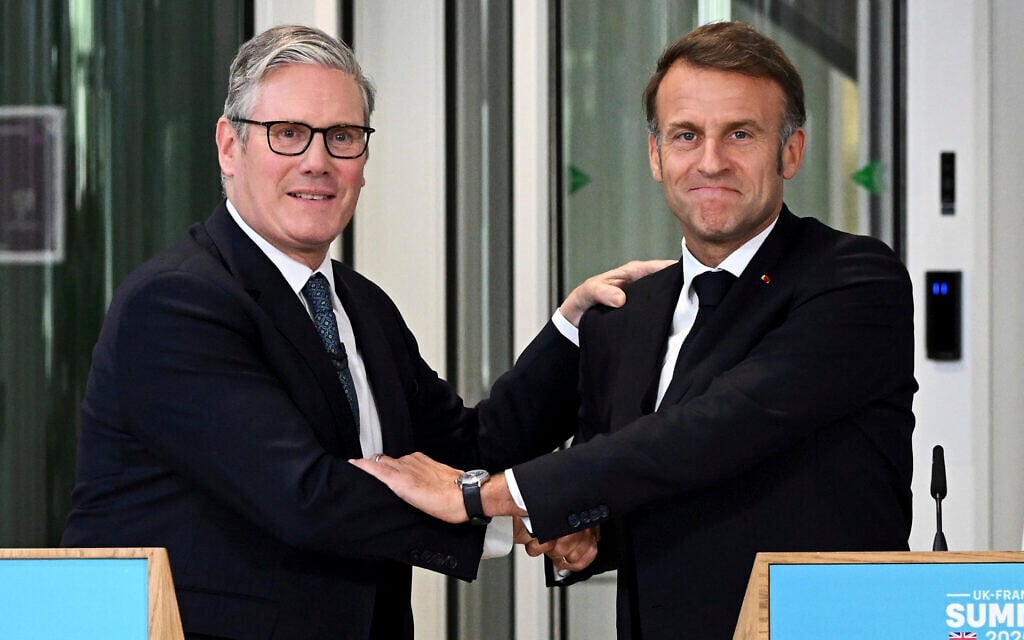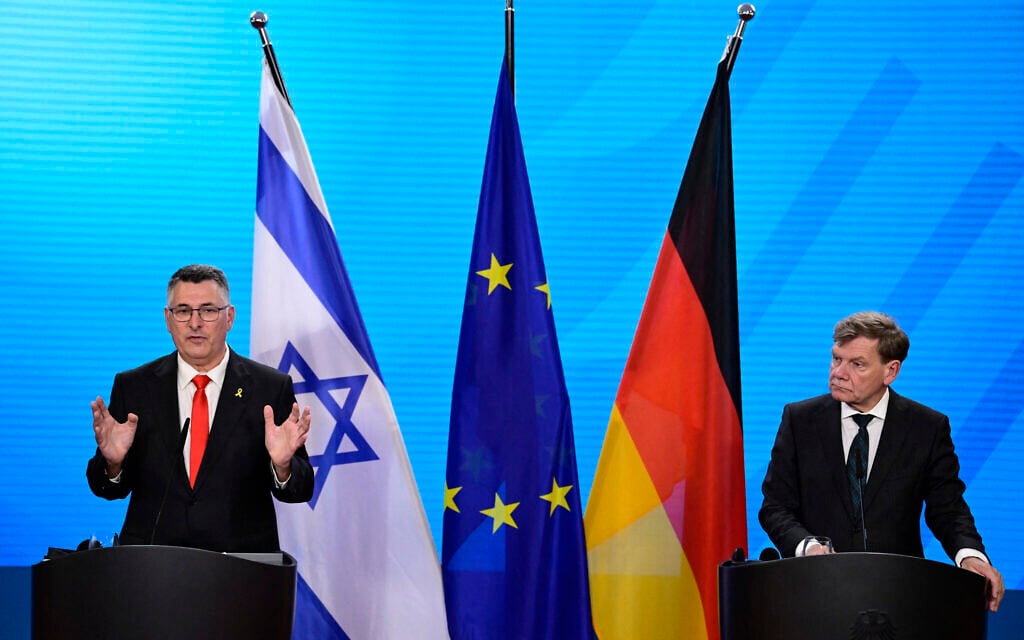



Ahead of an official visit to Israel on Thursday, German Foreign Minister Johann Wadephul said that Germany does not currently seek to join the recent wave of Western nations moving to recognize a Palestinian state, but warned that if negotiations for a two-state process do not begin, Germany may be forced to reconsider.
“Germany is convinced: To resolve the conflict sustainably, a negotiated two-state solution remains the only path that enables both peoples to live in peace, security, and dignity,” Wadephul said in a statement issued shortly before departing for meetings in Israel and the West Bank.
“For Germany, the recognition of a Palestinian state comes more at the end of that process. But such a process must begin now,” the minister urged, while cautioning that “if that process continues to be blocked, Germany must consider reacting accordingly.”
The top German diplomat’s visit takes place during a stormy diplomatic period for Israel, after a series of Western allies, including France, the United Kingdom, and Canada, announced their intent or serious consideration given to unilaterally recognize a Palestinian state at the United Nations General Assembly in September amid growing international outrage over the humanitarian situation in Gaza.
Israeli officials have uniformly rejected unilateral recognition of a Palestinian state, arguing that it rewards terrorism and undermines Israel’s leverage in ongoing efforts to free the remaining hostages held by Hamas in Gaza.
National Security Minister Itamar Ben Gvir responded in no subtle terms to Wadephul’s remarks, writing in a Hebrew-language post on X: “80 years after the Holocaust, and Germany is returning to supporting Nazism.”
Around 145 countries now recognize or plan to recognize Palestinian statehood. The White House on Wednesday reiterated that US President Donald Trump would not be doing so.
Wadephul said the trip to Israel and the West Bank came after “a joint decision of the security cabinet, to consult with my counterparts” on “the dramatically worsening” humanitarian situation in Gaza.

He added that “Israel is finding itself increasingly in the minority” after the recent UN conference on a two-state solution to the Israeli-Palestinian conflict — boycotted by the US and Israel.
“In view of the open threats of annexation by some in the Israeli government, a growing number of European countries are ready to recognize a state of Palestine without prior negotiations,” he said.
Wadephul is expected to meet with Foreign Minister Gideon Sa’ar on Thursday at the Foreign Ministry in Jerusalem, and will also hold meetings in the West Bank on Friday before returning to Germany, according to the German embassy.
The minister said he will focus on “three messages” during his trip: that Hamas release the remaining hostages in Gaza — “among them also German citizens” — and give up its military and political power; that Israel “take swift, comprehensive, and lasting action to alleviate the catastrophic situation in the Gaza Strip”; and that a two-state solution process must urgently be set in motion.
Wadephul’s trip had not been previously announced, and follows German Chancellor Friedrich Merz’s statements earlier this week that Germany, France and the United Kingdom were considering sending their foreign ministers to Israel on August 7 in an attempt to ramp up international pressure over the humanitarian crisis in Gaza.

“We will probably ask the three foreign ministers [to] travel to Israel together next Thursday to present the position of… the three governments,” Merz said, adding that two of his country’s aircraft were en route to Jordan to help fly aid missions to Gaza.
No plans have been announced for visits by UK Foreign Secretary David Lammy or his French counterpart, Jean-Noel Barrot.
